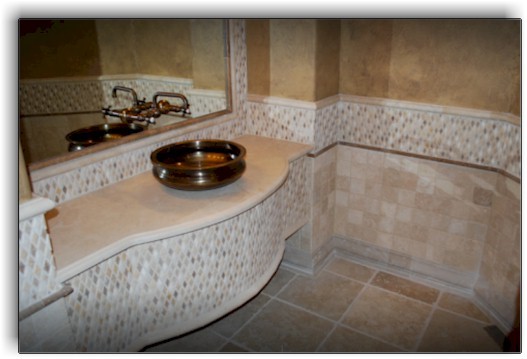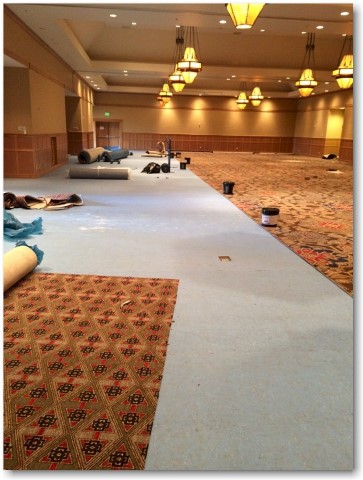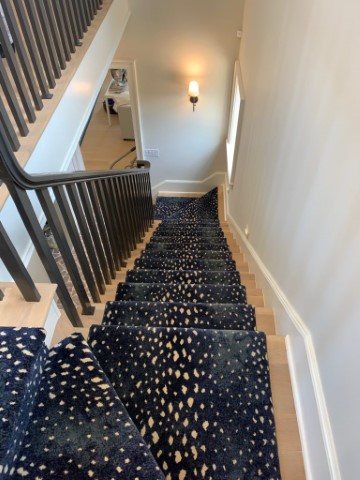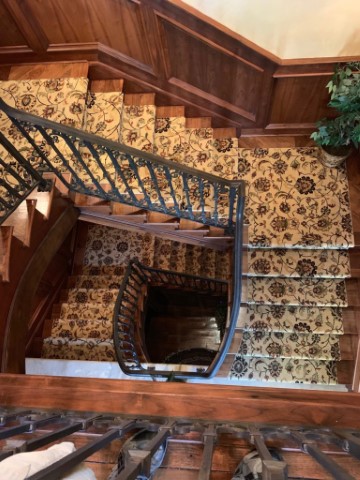With all of the rain in Denver recently many people had basement flooding and water damaged carpeting. You may be wondering if water-damaged carpet can be dried out and will it still be good?
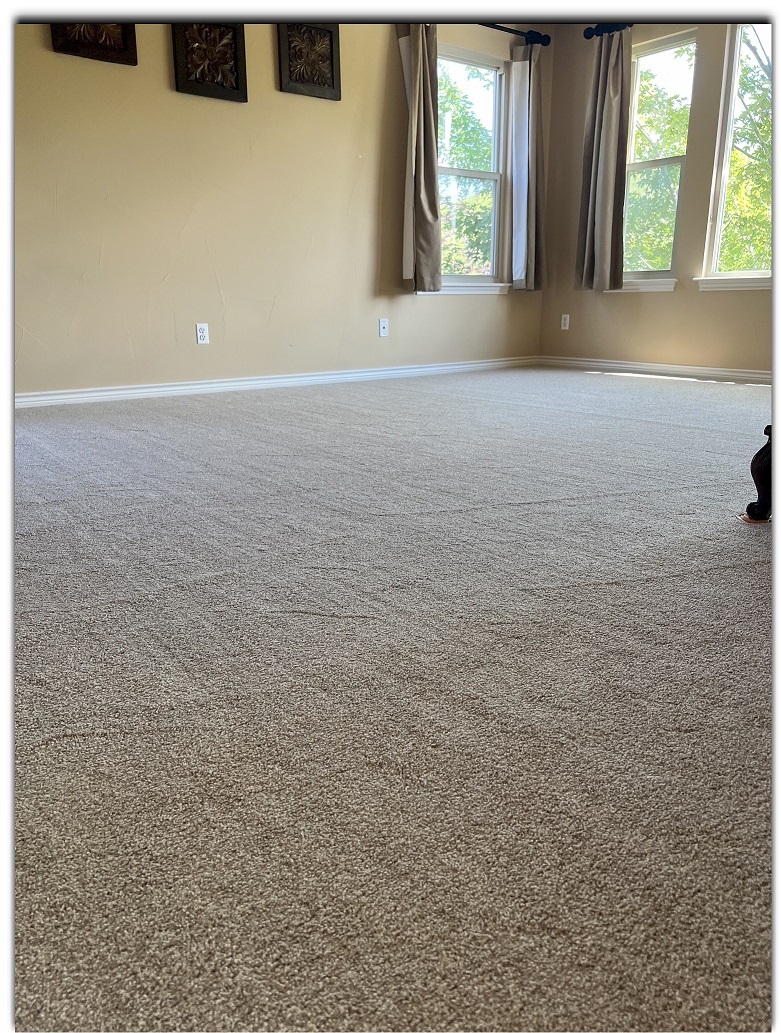
If the water that soaked your carpet was clean then you may be able to save it. You can also call a disaster company if they can make it out within 24 hours as they have professional equipment to remove the water. You may be able to rent equipment to remove the water as well.
If you are trying to salvage the carpet than the best thing to do is pull back the carpet nicely and dispose of the pad, get fans on the back of the carpet and the subfloor. If you leave the pad down, and or the carpet, mold will have a chance to grow easier. Pad is relatively inexpensive so disposing of it is a better option, often times pad acts like a sponge and difficult to dry out. Another way to determine if the carpet is salvable is when you roll the carpet back to remove the pad, you can look at the back of the carpet and see if there is any delamination on it. If you see portions of the back have delamination, there is a good chance that you will need to get new carpet.
Mold will start growing within 24 hours so you need to move quickly. You may be able to salvage the carpet for a few days after the flooding but it depends on if you smell mold and mildew. If the water was dirty you will most likely need to tear out the carpet and padding and replace it.
Steps to dry your water soaked carpet
- Stop the water leak
- Remove the water from the carpet and padding
Begin extracting the water that has soaked the carpet. A shop vacuum and submersible pump can effectively remove water from your carpet if it is saturated entirely with water. Your local rental or hardware store should have a submersible pump and a shop vacuum.
- Absorbent towels
After getting as much water up as possible, place and push down absorbent towels on the carper. Towels will aid in absorbing any residual water on the carpet.
- Baking soda
Sprinkle lots of baking soda over your damp carpet and let it sit for at least half an hour. Then vacuum it up.
- Fans and dehumidifier
Place dehumidifiers and fans in the room to create air circulation and evaporation. This will speed up the drying process and help prevent mold. It is best to rotate the fans every few hours. If possible, lift the carpeting off the floor and place fans above and below it. It will speed up the drying process and increase the likelihood of salvaging the carpet padding and subflooring.
- Clean and Shampoo
A carpet cleaner / sanitizer will help. Cleaning and sanitizing your carpet with a wash or live enzyme solutions before drying is a good idea. Using high-powered sanitizers and shampoo to dry your carpet can restore it to its natural state. You may want to hire a professional provided they can come out right away.
- Replace carpet padding
Drying your carpet may not be enough to prevent water damage. Your carpet padding can get damaged by water. If the padding underneath the carpet is not dried properly mold can grow and spread all around the carpet.
- Remove the damaged carpet
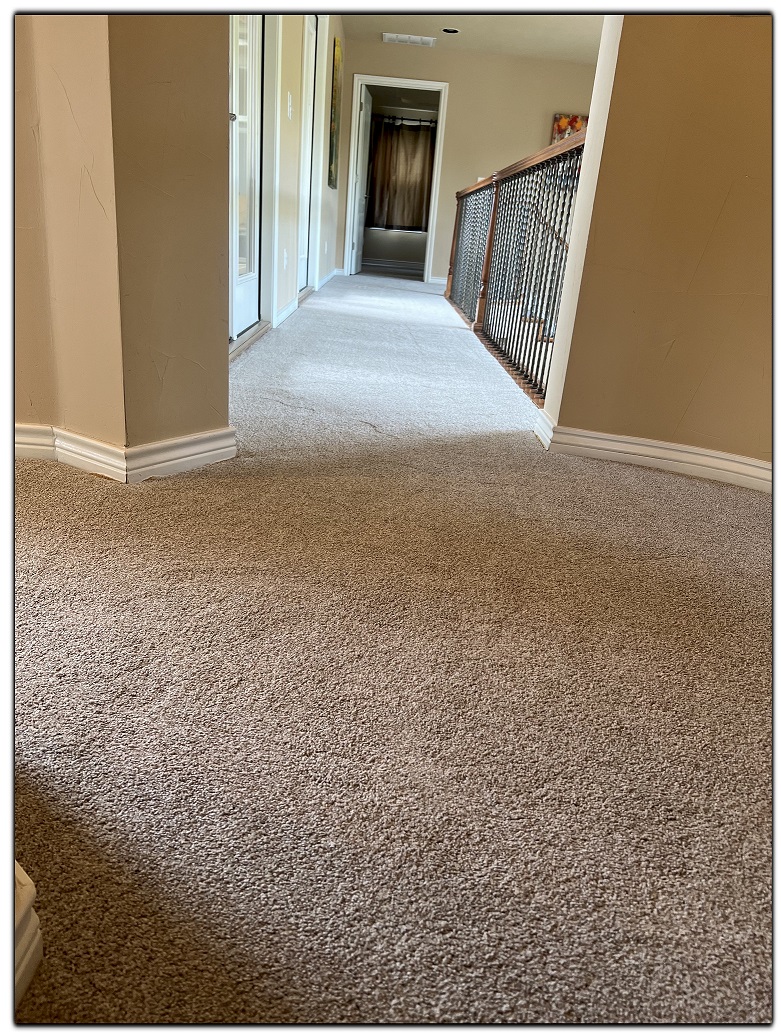 The damage caused by water may not be widespread. You may be able to take out the damaged section and replace it. Ideally, it would be best to cut around the damaged area. Cutting out a replacement piece that fits precisely into the cut-off is important. You may need to have the carpet sewn or fixed in place if it is moveable. If it’s already in place, you may secure it using carpet tape.
The damage caused by water may not be widespread. You may be able to take out the damaged section and replace it. Ideally, it would be best to cut around the damaged area. Cutting out a replacement piece that fits precisely into the cut-off is important. You may need to have the carpet sewn or fixed in place if it is moveable. If it’s already in place, you may secure it using carpet tape.
If you need to replace your carpet then give us a call to set up a free in-home appointment with our trained professionals. We help you through every step of the process for carpet from selecting colors and fabrics, to providing the installation. We provide a no pressure process and work with you to get the best carpet for your budget and lifestyle.
Coventry has some of the best installation crews in the state, and our reputation in the industry is second to none. We warranty all of our installations and will fix any issues guaranteed.
Residential Carpet 3 years for Nylon. 1 year for Polyester
Commercial Carpet 1 Year
Rubber Flooring 1 year
Luxury Vinyl Planks 1 Year



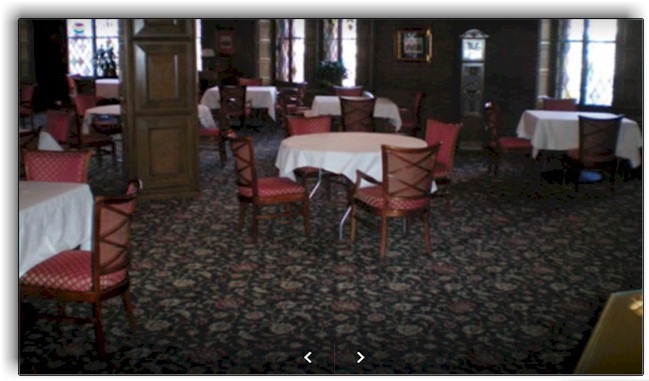 Be cautious of the “Big Box” stores if you are wanting to get new carpet installed. They often have promotions where they advertise “Free Carpet Installation.” We all know nothing is free and the only way they can afford to pay their subcontractors is to give you cheaper quality padding and /or carpeting.
Be cautious of the “Big Box” stores if you are wanting to get new carpet installed. They often have promotions where they advertise “Free Carpet Installation.” We all know nothing is free and the only way they can afford to pay their subcontractors is to give you cheaper quality padding and /or carpeting.